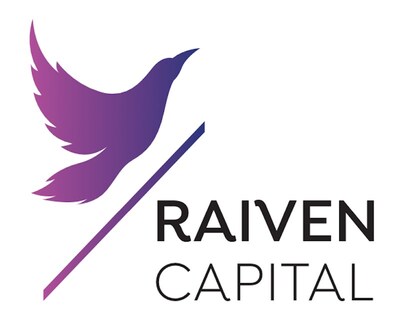In recent years, the integration of artificial intelligence into business operations has emerged as a significant trend, particularly for small and medium-sized businesses (SMBs). The challenge for these organizations is in effectively embedding AI into their workflows to enhance efficiency, decision-making, and overall productivity. The recent release of Raiven Capital’s Agentic Infrastructure framework highlights a transformative approach in AI adoption that SMB leaders should consider to fully harness its potential.
Instead of simply implementing large AI models that promise impressive capabilities, Raiven Capital emphasizes the importance of creating scalable and modular systems that embed intelligence directly into daily operations. For SMBs, this shift focus towards infrastructure opens up avenues to improve not only operational efficiency but also to foster a culture of continuous improvement. SMB leaders can start by evaluating their current systems and identifying areas where AI-driven automation can streamline processes.
One practical strategy is adopting AI-powered customer relationship management (CRM) systems. These systems are designed to automate repetitive tasks, such as follow-ups, data entry, and customer segmentation. For instance, automating follow-up emails can save significant time for sales personnel, allowing them to focus on nurturing leads rather than getting bogged down by administrative tasks. The ROI is evident when considering that engaged leads are more likely to convert into customers. An increase in sales conversions coupled with reduced administrative workload contributes to better efficiency and profitability.
Another area ripe for AI integration is inventory management. SMBs often face challenges in maintaining optimal inventory levels, which can lead to lost sales or excessive holding costs. AI can analyze historical sales data, market trends, and seasonal variations to forecast demand accurately. This means that an SMB can optimize its stock levels, ensuring that products are available when customers want them while minimizing excess inventory. Implementing such AI-driven workflows not only enhances decision-making but also has a direct impact on cash flow management and cost savings.
Decision-making processes can also be transformed through AI insights. SMB leaders can leverage predictive analytics to make data-driven decisions that were once reliant on intuition or historical precedent. For example, utilizing AI algorithms to analyze customer behavior allows businesses to personalize marketing campaigns effectively. Instead of generic advertising, SMBs can target specific customer segments with tailored offers, thus increasing the likelihood of conversions. This targeted approach can lead to higher customer satisfaction and loyalty, ultimately driving revenue growth.
Furthermore, AI chatbots are becoming indispensable tools for enhancing customer service. SMBs can implement AI-driven chat systems to handle basic inquiries and support requests efficiently. This not only provides customers with instant assistance but also frees up staff to focus on more complex issues that require human intervention. The reduction in response times and improvement in customer satisfaction can have lasting positive effects on customer retention and brand reputation.
While the potential for AI integration is immense, leaders must prioritize building resilient AI ecosystems rather than relying on fragile point solutions. This means that SMBs should consider investing in platforms that integrate multiple functionalities and can evolve as technology advances. By doing so, they can avoid the pitfalls of siloed systems that hinder operational efficiency and limit growth.
For SMB leaders, the challenge lies in determining whether their systems are agent-native or model-bound. The increasing complexity of consumer expectations and market conditions requires organizations to create agile workflows that can respond dynamically to changes. Investing in knowledge sharing, interoperability between systems, and adopting emerging protocol standards can set a strong foundation for building a future-proof business.
The ROI perspective also cannot be overlooked. While initial investments in AI infrastructure may seem daunting, the long-term benefits often outweigh the costs. Enhanced efficiency leads to reduced operational costs, improved customer engagement, and ultimately higher revenue. For many SMBs, the strategic integration of AI can expedite digital transformation, paving the way for scalability and adaptability in an ever-changing business landscape.
Raiven Capital’s emphasis on viewing AI as infrastructure rather than a feature provides a vital framework for SMBs. By embedding AI deeply within their operational fabric, businesses can cultivate living ecosystems of intelligence that adapt and grow. This perspective encourages organizations to think beyond traditional models and fosters a proactive approach to leveraging technology for long-term success.
As SMBs consider how best to integrate AI into their operations, they must recognize the inherent advantages of establishing dynamic, adaptive workflows that respond to changing business needs. In doing so, they position themselves not only to capitalize on immediate opportunities but also to ensure sustained growth and resilience in the future.
FlowMind AI Insight: By embracing AI-driven workflows and automation strategies, SMBs can dramatically enhance their operational efficiency, leading to more informed decision-making and increased productivity. Making strategic investments in AI infrastructure today will empower organizations to navigate the complexities of tomorrow’s business landscape with confidence.
Original article: Read here
2025-09-10 13:00:00

